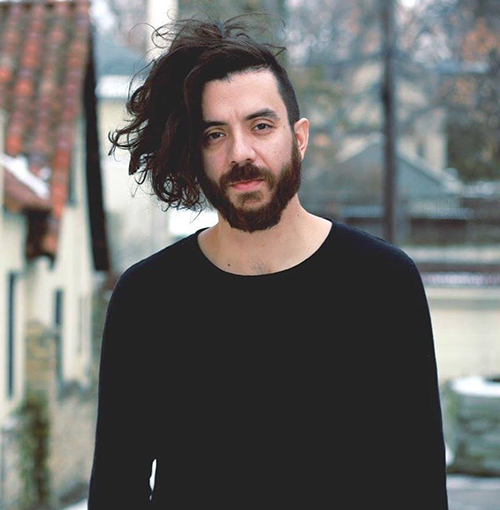Four Vulnerable Poets Writing About Addiction and Recovery
Author Photo By Hieu Minh Nguyen
Trigger Warning: This article discusses substance abuse.
Writing and alcohol possess a long-standing connection in literary culture. This can be lighthearted, inspiring boozy bookstores and cocktails named after classic novels. However, the trope of the drunken writer can also exert a darker impact. Four out of the six American writers awarded the Nobel Prize for Literature struggled with alcoholism: William Faulkner, Eugene O’Neill, Ernest Hemingway, and John Steinbeck. Compounding this, some scientists find there may even be a neurological link between writing and substance abuse. The prevalence and pressure of alcohol and drugs in the literary world has inspired writers in recovery to reflect on how to attend the annual Artists, Writers & Poets (AWP) Convention while sober. Others in recovery have questioned whether sobriety kills creativity (spoiler: it does not). Despite the challenges, these four poets—and many others—show that recovery can strengthen a poetry career, provide personal subject matter, and even inspire readers to get help.
Hala Alyan (@HalaNAlyan on Twitter)
Palestinian American poet Alyan has experienced many different sides of addiction as both a practicing clinical psychologist who specializes in the topic and a person in recovery herself. In an interview with The Fix, Alyan dives into how the familiar 12-step program can also be a process for writing poetry: “There is a certain surrender that comes from making art. There is a certain amends-making that comes from making art.”
The connection between these two processes led Alyan, who further explored the addiction and recovery in her latest collection, The Twenty-Ninth Year, to write a series of poems based on each step. In “Step Two: Higher Power,” published in The Rumpus, she beautifully and honestly confronts the difficulty of becoming sober.
“I’m afraid of sleep this week. / Next week it’ll be something else: mosquitos, black holes, / the snap of fireworks from one rooftop to another. It was like how I lied about getting sober: it was hard. / …This was how a year passed, with hundreds of lies, / like that midnight walk in the French countryside dark, / my sister giggling nervously, no streetlamp for miles, / one footstep after another, and the only way out ahead.”
Kaveh Akbar (@kavehakbar on Twitter)
Akbar serves as perhaps one of the best examples of how to make a life and career out of poetry. He teaches for three MFA programs, writes a weekly poetry column for The Paris Review, and founded the literary journal Divedapper. In addition to all of this, he also manages to write his own Pushcart-nominated poetry, much of which examines the themes of alcoholism and recovery. In an interview with The Adroit Journal, Akbar discussed that sobriety has forced him to approach poetry with more honesty and nuance. “I think something that happened for me once I got sober was that I stopped making myself the hero of my poems,” Akbar acknowledged.
Akbar’s chapbook, Portrait of the Alcoholic, chronicles this complex journey toward sobriety. Specifically, Akbar writes about alcoholism through the lens of his Muslim identity and Islamic traditions.
In his poem “Against Dying,” Akbar writes about still being alive, against all expectations and obstacles. “how shall i live now / in the unexpected present,” he ponders. “I spent so long in a lover’s / quarrel with my flesh / … I put a sugar cube / on my tongue and / swallow it like a pill.”
Mary Karr (@marykarrlit on Twitter)
Karr has widely written about alcoholism and recovery as a poet, memoirist, and songwriter, winning awards that include a Guggenheim fellowship, a National Endowment for the Arts Fellowship, and a Pushcart Prize for work that juxtaposes difficult themes with delicate, gorgeous language. She teaches literature at Syracuse University.
In “For My Children,” Karr reflects on her experiences. “Once I saw / my entire history in an avocado seed, / a quick replay of all my dawns, / until I stared, breathless, at the green pulp / in my cupped palms.” She goes on to tell her children, “You’re blessed, will remain, / for a time, unborn, without a past.”
Luis J. Rodríguez (@luisjrodriguez on Twitter)
Rodríguez, a former Poet Laureate of Los Angeles, has written 16 books in all different genres. He advocates for indigenous, Latinx, and Chicano representation in literature, and founded Tia Chucha Press, a diverse book publisher that has published writers like Patricia Smith, Terrence Hayes, and Diane Glancy.
In addition to his memoir, It Calls You Back: An Odyssey Through Love, Addiction, Revolutions, and Healing, Rodríguez’s poems trace the path from addiction to sobriety. In “Love Poem to Los Angeles,” published in Rattle, Rodríguez celebrates L.A. as a backdrop to himself at both his worst and his best. In a way, L.A. begins to work as a metaphor for human darkness and light.
“To truly love L.A. you have to see it / with different eyes, / askew perhaps, / beyond the fantasy-induced Hollywood spectacles. / ‘El Lay’ is also known / for the most violent street gangs, / the largest Skid Row, / the greatest number of poor. / Yet I loved L.A. / even during heroin-induced nods / or running down rain-soaked alleys or getting shot at. / Even when I slept in abandoned cars, / alongside the ‘concrete river,’ / and during all-night movie showings / in downtown Art Deco theaters. / …L.A. is also lovers’ embraces.”
Self-isolation and boredom can be triggers for those facing addiction. Anyone needing extra help during coronavirus, which closed off many in-person resources, can call the Substance Abuse and Mental Health Services Administration (SAMHSA) 24-hour-hotline at 1-800-662-4357.




